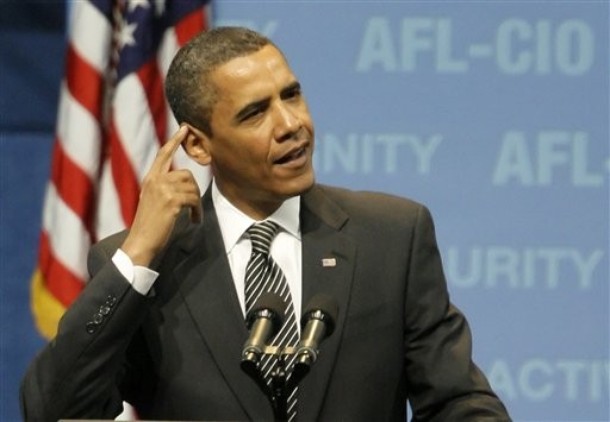Cheer up, Doug
http://www.leftbusinessobserver.com/LBOAt20.html
Sure, he can hit the spot:
What is it with people on the left? So eager to put 30 million people out of work -- the modern equivalent of the 1929-32 rise in unemployment -- to make a political point?But does he understand how the big system works -- the global TNC express?
Populism is almost always by definition vague; it rarely has an analysis more profound than "somebody's ripping us off," nor a prescription more detailed than a change of personnel. Some resentment against "trade agreements" was mobilized, but legal documents like NAFTA have a lot less to do with the world that has emerged over the last couple of decades than the relentless lowering of transportation and communications costs, which have made global production networks possible, and the deliberate attacks on unions and welfare states.In any case, the lesson I learned from the 1987 crash was that the ruling class had mastered the art of state--led bailouts. Despite all their talk of market discipline, they would never hesitate to mobilize the full resources of government to keep the economy from imploding. Left untreated, an implosion would impoverish the rich -- and enough other people to threaten political stability. So the savings & loans were bailed out to the tune of $200 billion, with hardly any public debate -- no talk, for example, of turning the failed institutions into democratically controlled development banks. Citibank was quietly nationalized until it could get back on its feet. And Alan Greenspan, that Ayn Rand protege who never shied away from using the state to rescue troubled capitalists, drove interest rates way down and kept them there, which kept the heavily indebted and their bankers alive. Of course, that round of low interest rates helped launch the stock market bubble of the 1990s. And when that bubble burst in 2000, Greenspan & Co. were there again to push interest rates down even lower. And that round of low interest rates helped launch the housing bubble of the early oughts -- ad infinitum.
Sidelight: Doug shares a fond fear of the prudent prog:
What guarantee would there be that people would look to humane collective action in a crisis? They could just as easily fall in step with jackbooted xenophobes.But here's the rub, a limp reflective causology, bad meme moonshine:
But why has the class war been so easy? Why has there been so little resistance? There are several reasons, among them the atomization and political disengagement of the American masses. But I'd also want to emphasize the durability of that Yankee-Protestant tradition in the culture... American Protestants [palefaced wage class division included -- O.P]... have long had a deep sympathy for The Market. Since they see humans as fallen, corrupt creatures always in need of a good kick in the ass, they revere it as a wonderful mechanism of social discipline, punishing the lazy and rewarding the hard-working. If people are poor, it's because they're immoral, impatient, or wasteful.He even quotes the great C Wright Mills:
[A]mong the mass distractions this feeling [of rage at the latest 'crisis and scandal'] soon passes harmlessly away. For the American distrust of the high and mighty is a distrust without doctrine and without political focus; it is a distrust felt by the mass public as a series of more or less cynically expected disclosures.Hell, sez Doug, the smurfy hoi-polloi fools don't even believe its... a struggle!
the electorate despises conflict, and has a naive idea that politics isn't about struggles over principles and material shares, but working for the common goodSo cometh a bilious pessimism:
even things that shouldn't involve much shaking, like national health insurance, seem only slightly less impossible than total revolution....and yet Isaiah speaks to the nation:
in many areas of political life there is no common good. The normal operation of the economic system requires that some do badly so that a few do well, and any attempt to redress that imbalance is going to provoke conflict. There's no painless way to make the poor less poor or the middle more secure; people at the top will have to be expropriated. It's very hard to say that in public in the USA.Doug, think a little more about the international angle, and you might brighten your complexion. Pondering the imperial dollar might set your mind into forward struggle gear. You've missed one of the biggest boats of all, and it's a pop boat. Here's your list of job killers: ... relentless lowering of transportation and communications costs, which have made global production networks possible, and the deliberate attacks on unions and welfare states. No mention of the duo of doom, a monstrously overvalued north vs. south forex policy, to facilitate southbound capital export, and a sector-by-sector "open wide" north from south products import policy.
The ready remedy for both is pure populism: dive the dollar, and give us domestic job helots half a chance.
A fair trade dollar is also a high wage dollar -- as we've mentioned ad nauseam -- so we call for a movement that is a true daughter of the classic Bryanism crusade.
All is a-building toward nasty -- the paleface wagery may run, but they can't hide. They will be pushed to push back -- maybe not on your hurry-up schedule, Doug, but they will.
The tower fuckers haven't got the deal "dicked". It ain't gray all the way, just 'cause they'll lay off those 30 million American souls we lefticles dream of, over a Procrustean dollar bed, not a one-off, big-bang, financial '29-type nuking.
Ahh, Clio's million moles, how they tunnel -- even as we gassify and moan. "When will it all end?" When Clio's damn good and ready, and not a decade before or after.

